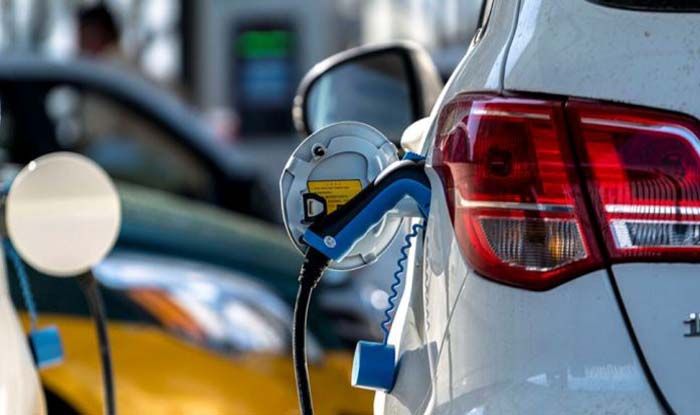
New Delhi: In a thrust towards incentivising new age technologies and fulfil the pledged taken at COP26 to reduce its carbon emissions to net-zero by the year 2070, India is aggressively promoting the adoption of Electric Vehicles (EVs). India aims of switch 30 per cent of private cars, 70 per cent of commercial vehicles, and 80 per cent of two and three-wheelers to EV by the year 2030. For this, both Central and state governments are offering various incentives to buyers and manufacturers.Also Read – E-Amrit Launched In India: Everything You Need To Know About E-Amrit Web Portal For Electric Vehicles, Explained | Watch Video
PLI Scheme For Auto Sector
In September this year, the Union Cabinet approved a Rs 26,058 crore production-linked incentive (PLI) scheme to accelerate domestic manufacturing of electric and fuel cell vehicles and drones in India. As per government’s estimate the scheme would attract Rs 42,500 crore in fresh investment in the automobile and auto components industry over five years. The government has allocated Rs 25,938 crore for the automobile sector and remaining Rs 120 crore or the drone sector. Also Read – As Fuel Price Hike Rally Continues, Registration of Electric Vehicles in Delhi Witness Major Spike
FAME II Amendment
In another move to promote electric two-wheeler usage in the country, government of India in June this year r amendment to the ongoing FAME-II (Faster Adoption and Manufacturing of Electric Vehicles-II) scheme. Under it, the government significantly reduced the price gap between petrol-powered two-wheelers and electric ones by increasing the subsidy rate for electric two-wheelers from Rs 10,000/kWh, to Rs 15,000/kWh, while also capping the incentives at 40 per cent of the cost of vehicles as against 20 per cent earlier. Also Read – Tesla Visits PM’s Office, Requests Cut On Import Taxes On Electric Vehicles Before Entering Indian Market
Further, Government of India’s procuring body Energy Efficiency Services Ltd (EESL) will also aggregate demand for 3 lakh electric three-wheelers for multiple user segments.
Centre’s Scrappage Policy
Prime Minister Narendra Modi, in August this year, launched the Vehicle Scrappage Policy virtually at the Gujarat Investor Summit. The policy aims to phase out unfit and polluting vehicles in an environment-friendly manner. Under the policy, vehicles will not just be scrapped by their age but also if they are found to be unfit in automated testing. The vehicle scrappage policy for private vehicles is set to be implemented in 2024. The policy is said to offer a much-needed boost for the Indian auto sector and bring investments of around Rs 10,000 crore by improving new vehicle sales.
Changes in State EV Policies
Along with Centre, state governments are also leaving no stone unturned to promote faster adoption of EVs in India. To increase penetration and adoption of battery electric vehicles (BEVs), governments of around 20 states in India, including Delhi, Gujarat, Goa, Maharashtra and Rajasthan have already come up with either a draft or final state level EV policies. The objectives of each state level policy will vary but some common objectives include– solving air quality issues, help in climate change mitigation, reduce dependence on oil imports and promote development of EV industry.
Stay connected with us on social media platform for instant update click here to join our Twitter, & Facebook
We are now on Telegram. Click here to join our channel (@TechiUpdate) and stay updated with the latest Technology headlines.
For all the latest Technology News Click Here
